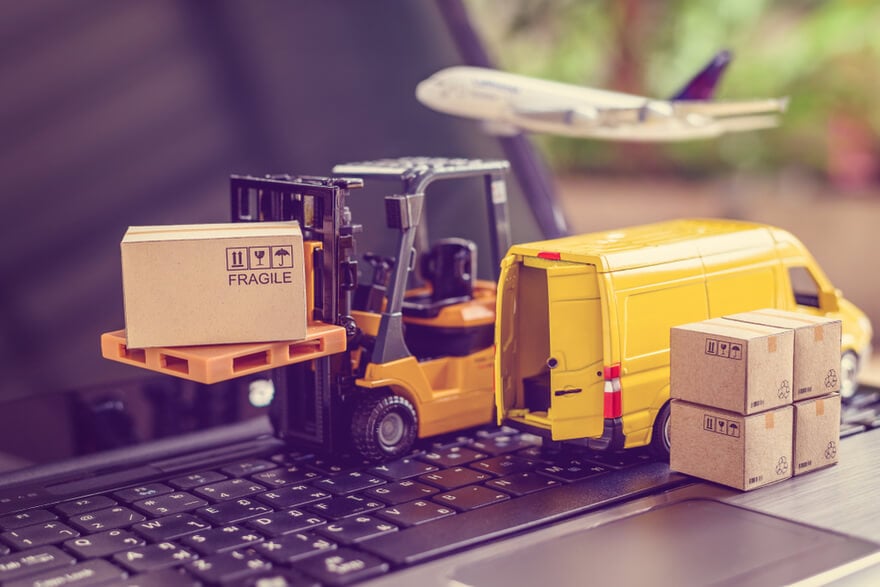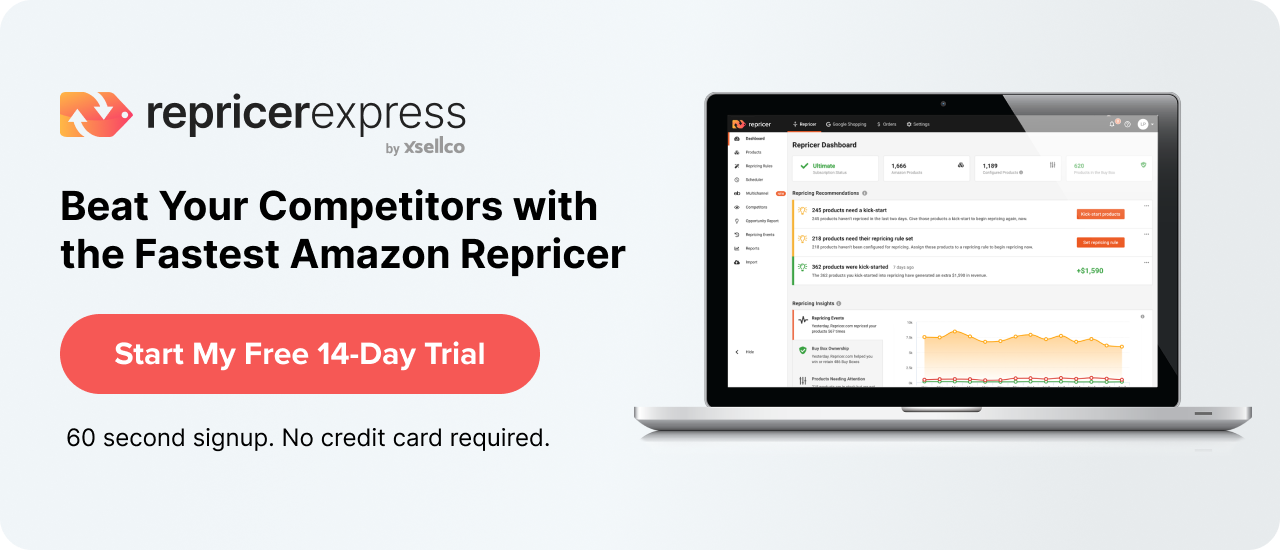Identifying a solid, reliable supplier model can be challenging, even for the most seasoned Amazon store owner. Selecting a supplier for Amazon is also one of the most important business decisions you will make, second only to choosing the products for your store.
Why You Need a Great Supplier for Amazon Success
Your supplier is a partner in your business, and partners can be your greatest support or your worst nightmare. In the same way, you would take great care in choosing your business partner, you must take great care in choosing a supplier to ensure a fruitful, efficient relationship as your business grows.
You have to be able to work closely and comfortably with your supplier to ensure that your customers have a positive experience. Suppliers can influence wait times for your products, which will dramatically impact your reputation and seller rating.
It might take some time and energy now to research and shop for a reliable, trustworthy supplier, but think of it as sweat equity: it’s worth it. The investment you make now in finding a good supplier will save you time and money down the road when you don’t have to deal with product issues and late orders.
Types of Suppliers for Amazon
For the purposes of this post, we are going to focus on the four most popular types of suppliers for an online store: dropship suppliers, wholesalers, manufacturers and liquidators.
1. Dropship Suppliers
Dropship suppliers are among the most popular choices for online store owners. They maintain your inventory and send products to customers on your behalf.
2. Wholesalers
Wholesalers provide store owners with the opportunity to buy a large number of products at a much lower price. The more products an owner purchases from a wholesaler, the more considerable the discount they’ll receive on the order.
3. Liquidators
Liquidators also go by another, perhaps more flattering, name: asset recovery specialists. Liquidators make large purchases of overstocks, returns, closeouts and similar unwanted items. The liquidator then resells these items on the market in large, repackaged bundles that vary in size.
4. Manufacturers
Manufacturers present the opportunity for you to purchase directly from the producer. They offer great prices but frequently require massive minimum orders, meaning you have to pay a lot upfront. They are great options for more established sellers who have resources to work with, but can be a challenge for a brand-new store.
Pros & Cons of Dropship Suppliers
Pros
- No inventory
Inventory can be a major hassle, especially when you have a busy, productive Amazon store. Maintaining an inventory in-house requires extensive space and the additional effort of managing your own shipping process. One of the greatest benefits of using a dropship supplier is you don’t have to deal with any of this. - Low Overhead
Instead of paying for a huge load of products and then feeling pressure to sell them, you pay your supplier for products as you sell them. This reduces your overhead costs and your financial risk. - Variety
An added benefit of dropshipping is that you can adapt your Amazon store to suit demand. You can respond to shopping patterns and customer requests so that your store only carries products that will make money.
Cons
- Less Control
When you give a dropship supplier control over your shipping process, you introduce a middleman. If you verify your supplier and build a good, trusting relationship with them, this shouldn’t be a problem—but it still creates more room for mistakes than handling your own inventory. - Potential Stock Challenges
You are subject to the ebb and flow of the supplier’s inventory, which might not always be in your favour. - Expense
Because dropshipping is so convenient, and because you aren’t buying in bulk, your per-item costs will be higher. This makes it harder for your Amazon store to have competitive pricing and still turn a profit.
Related: Dropshipping on Amazon in 2020
Wholesalers
Pros
- Low Cost
Cost is the major driver for Amazon sellers who decide to use a wholesaler. Buying in bulk means your per-item prices are much lower, which allows you to provide more competitive prices in your store. Additionally, wholesalers are more likely to be open to price negotiation, so you can save a few bucks with that. - Simplicity
Working with wholesalers is relatively easy and straightforward. Many different products can be purchased from a single wholesaler.
Cons
- Startup Cash
You’ll need a large sum of money to start off with a wholesaler because you’ll have to purchase a lot of items at once. - Inventory Management and Space
Again, because wholesale orders are generally very large, you’ll need space to manage your inventory. - Pressure to Sell
Once you have an inventory of 14,000 widgets, you have to sell 14,000 widgets… or take a financial hit. If you’re confident in the evergreen nature of your product, this isn’t a problem, but if you’re subject to shopping trends like most Amazon stores, getting your money back might be a slow process.
Liquidators
Pros
- Great Per-Item Price
Liquidators are trying to make money fast, so they sell products for less than their value, meaning you get an excellent per-item price and have a little more negotiating power.
Cons
- High Risk
Some liquidators won’t let you see the items before purchase, meaning some of the products might be faulty or damaged. Purchasing from a liquidator is usually risky in terms of final product quality. - Unreliable
Liquidators are sort of a lucky find, especially when your store is product-specific. They usually can’t act as consistent, reliable suppliers.
Manufacturers
Pros
- Low Per-Unit Cost
Like liquidation and wholesale suppliers, manufacturers can provide you with a solid per-item price, though they’re often less open to negotiation. - Opportunity to Customise
You can have a manufacturer create a product according to your specs or even personalize it, which can be a great selling point.
Cons
- Large Minimum Order
Like purchasing wholesale, purchasing from a manufacturer requires a larger (and more expensive) starting order, so you need upfront cash to make it work. - Supplier Reluctance
Manufacturers might be less willing to work with small-scale Amazon stores. They often create relationships with bigger retail names.
What to Consider When Comparing Suppliers
When searching for a supplier for your Amazon store, there are several factors that you need to inquire about and compare amongst the suppliers you’re considering. Here are a few examples of things to ask about when shopping for a supplier:
- Shipment time for their products
- Method of shipment (what shipping company the supplier uses)
- If and how they track packages
- Their return policy
- References from other store owners who have used their services
Tools to Help You Choose a Supplier
Even after you’ve decided on your favourite supplier model, finding a supplier can be a major challenge. The internet is rife with scams—being a fake supplier is, unfortunately, a lucrative business. Luckily, there are tools that can make the search easier.
One such tool is a supplier directory. Online directories like SaleHoo are excellent resources for finding reputable suppliers. Using a directory allows you to search for a supplier based on the things that are most important to you without worrying about being scammed. Also, by narrowing down your search from the entire web to a pool of verified suppliers, you can save a lot of time.
No matter which of the supplier types you decide to work with—wholesaler, drop shipper, liquidator or manufacturer—an online directory provides you with a great place to start narrowing down your search.
Invest the Time
The importance of selecting a good supplier can’t be overstated. You can lose a lot of money on a scam supplier. Perhaps worse, your store’s reputation can suffer if you end up partnered with a real supplier who just doesn’t do their job well. It’s undoubtedly worth the time and effort to do the research now and find the best supplier for your Amazon store.
Interested in automating your Amazon prices to increase sales and profits (and save time). Try RepricerExpress for free today – no credit card needed.






